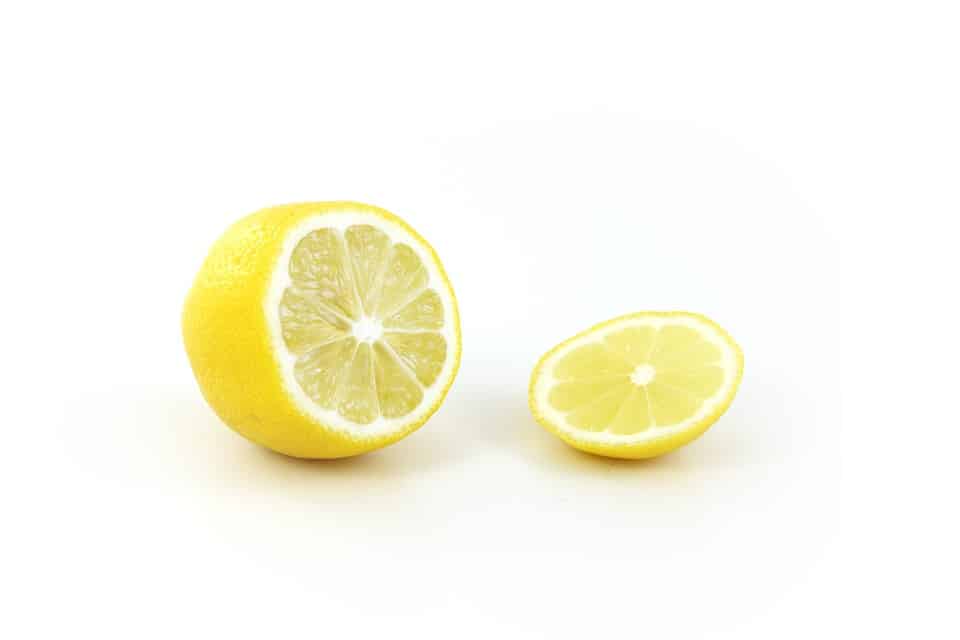The sour flavor of lemons is caused by the acidic content of the fruit, which is around two pH. The citric acid acts on the taste buds on the tongue and alerts the brain to the sour taste. While a small amount of citric juice can be harmful, it can be helpful. It is also beneficial to consume lemons in moderation as it can help you improve the taste of any dish.
Lemons have been around for a long time and are a human invention. They are thought to have originated in Asia and Northern India. Citron and bitter orange have the same acid concentration, and their genetics were used for crossbreeding the two. The resulting plant had a fleshy fruit with high citric acid and natural sugar. This makes lemons sour and the fruit a delight.
Why do lemons taste sour?
There is an organic acid in lemons that makes them sour. This acid is found in many fruits and vegetables, including tangerines and lemons. The higher the concentration of citric acid, the sour the fruit tastes. A typical lemon has more citric than an orange or lime, but a tangerine has less than the latter. Regardless of the level of citric acid, lemons and limes have a sharp and bitter taste.
Lemons are sour because they contain a high amount of citric acid. Citric acid is an organic acid that ranges from tens of thousands to 100 times more acidic than water, and Citric acid is the source of the sour flavor that we associate with lemons. If you drink lemonade, you will be drinking something with a pH of two to three. In fact, the pH of a cup of lemonade contains 5.2 to 5.5.
The citric acid found in citrus fruit is responsible for the sour flavor, and this chemical is present in many fruits and vegetables, including citrus fruits. A higher concentration of citric acids in fruit makes it sour, and lemon has a high concentration of citric and other acids.
The acid in lemons is responsible for sourness. The citric acid in a lemon is between two and three pH. The higher the citric acid, the sourer the fruit is. However, a lemon is not necessarily sour. Its acidic content is equivalent to that of a grapefruit, and its acid content is measured in tens of thousands of different fruits and vegetables.
Lemon has a high concentration of citric acid, and Citric acid is between five and seven times more acidic than oranges, and lemon is also sourer than an orange. Aside from the citric acids, lemons also contain white pith, located between the outer rind and the juice sacs. Those white pith may be squeezed into the juice and bitter.
Health advantages of lemons
Lemons include vitamins, fiber, and plant chemicals that can benefit one’s health. The pulp, rind, and juice are high in vitamins that boost immunity and lower disease risk, and lemon’s soluble dietary fiber promotes a healthy digestive system.
Lemons can also provide a variety of other health advantages, including:
Cardiovascular health
Lemons include roughly 31 grams of vitamin C, which is about double the amount required in your regular diet. With regular ingestion, this burst of Vitamin C can lessen your risk of stroke and heart disease, in addition to boosting immunity.
Lemon also has a lot of dietary fiber, which might help reduce heart disease risk factors by reducing LDL or bad cholesterol. A high cholesterol level can cause atherosclerosis, which is a hardening of the arteries in the heart.
Healthy digestive system
Lemon has a lot of nutritional fiber in it. Constipation and several other gastrointestinal disorders and pain can be helped by fiber, especially soluble fiber.
Controlling your weight
When you eat lemons, the pectin fiber expands, making you feel full faster and for longer. Lemon water is frequently promoted as a weight-loss and weight-management aid, and the effects on people were not explored in this study conducted on mice. It’s also worth noting that, like lemon, drinking water might keep you full and help you avoid eating.
Preventing anemia
While lemon does not have significant iron content, it can aid in absorbing iron from plant-based foods in your diet. Maintaining adequate iron levels helps prevent anemia, characterized by a lower-than-normal amount of red blood cells and is frequently caused by iron deficiency.
Preventing kidney stones
Citric acid, abundant in lemons, gives them their sour flavor. Citric acid has been shown in several trials to help prevent kidney stones from forming.
Uses of lemons
So you bought a bag of lemons, but you’re not sure you’ll be able to eat them all before they spoil. Don’t worry; you can utilize them in various ways in the kitchen.
- According to Self, they’re amazing when it comes to rigorous cleaning. Is your microwave acting strangely? To free up any gunk that’s been building up, slice some lemons, place them in a basin of water, and microwave for five minutes.
- They can also be used to clean up the odor in your waste disposal. Simply combine 1 cup baking soda, 1/2 cup salt, 1 tablespoon lemon zest, and 1 tablespoon lemon juice. Mix well, then add enough lemon juice to make the mixture keep its shape before pressing it into an ice cube mold and freezing it. Put it in your garbage disposal and run it – with water — to freshen it up.
- You can also use them to freshen up the entire house, which is a terrific trick for entertaining. Slice your lemons and place them in a frying pan with rosemary sprigs, a few drops of vanilla, and enough water to cover them. After a few minutes of simmering, you’ll have a potpourri of lemon and rosemary. Another great approach to acquiring that fresh scent is to dry your lemon peels and use them in your fireplace with a firestarter.
What nutrients does a lemon contain?
Water, proteins, carbs, sugars, fibers, and lipids are just a few of the nutrients found in a lemon. Water makes up 89 percent of a lemon.
Protein
Lemons contain about 16 percent protein, twice as much as oranges and three times as grapefruit. Protein is a nutrient that your body uses to help repair damaged tissue and muscles.
Carbohydrates
Simple sugars, including glucose, fructose, and sucrose, make up most of the carbs in a lemon. Sugars make up the majority of carbs, and the majority of the sugars in lemon are fructose.
Fibers
Pectin, a sugar acid generated from galactose that is particularly vital for a balanced diet, is one of the critical fibers in a lemon. Fiber also helps to keep your digestion in check.
Why should you include lemon in your diet?
First, the good news: lemons are beneficial to your health. According to Healthline, there are many compelling reasons to include them in your diet. Citrus fruits are high in vitamin C, linked to a lower risk of stroke and heart disease, and regular consumption of citrus fiber has been linked to lower cholesterol levels.
In certain studies, citric acid has been associated with reducing the frequency of kidney stones, and lemons can also help avoid iron insufficiency. They don’t contain much iron, but they help your body absorb iron from other foods more effectively. They’ve also been linked to aiding in weight loss and preventing certain types of malignancies, but more research is needed to provide conclusive evidence.
Then there’s the bad news. According to Insider, eating too many lemons can have harmful consequences, including tooth enamel degradation, which can worsen canker sores and disturb your digestive system. Citrus fruits, including lemons, are also known migraine triggers for many people, so pay attention to how you feel after squeezing a lemon into your water or adding a slice to your drink.

What vitamins and minerals are in lemons?
Lemons provide a variety of essential vitamins and minerals that are necessary for a balanced diet. Vitamin A, B6, and C are the vitamins in question, and minerals like iron and potassium can be found in lemons.
Vitamin a
Vitamin A is a powerful antioxidant that helps the body vitamin A is a vital nutrient that aids our vision and supports our immune systems.
It also aids in forming and developing our bones and hair health. Vitamin A is a powerful antioxidant that helps the body; additionally, it aids in the development of solid and durable teeth.
Vitamin B6
Vitamin B6 is a fat-soluble vitamin that aids in converting food into energy. All-day energy This vitamin can also help alleviate the signs and symptoms of Depression, and the chance of Alzheimer’s disease is reduced. It is impossible for your body because it does not synthesize vitamin B6 and must be obtained from food.
Vitamin C
C is a powerful antioxidant, and vitamin C is a vital antioxidant and crucial vitamin for your overall health. To function, your immune system must combat viruses and illnesses and assist your body in recovering from injuries.
Skin. Lemon juice is another popular treatment for acne scars. Lemon The bacteria that causes acne will be killed by the juice. Finally, lemons are an excellent source of vitamin C.antioxidants, which help to prevent wrinkles by preventing cellular damage.
Iron
Iron is an essential mineral for hemoglobin, the red blood cell. Oxygen-transporting cells carry oxygen from your lungs to the remainder of your body. If you are interested in learning more about
You won’t produce enough healthy oxygen if you don’t have enough iron in your body. To transport red blood cells all over the body. It’s also crucial to have enough iron. since your hormones necessitate the presence of iron.
Potassium
Potassium in lemon is required to function various bodily components properly, including your kidneys. the correct functioning of the brain, heart, and muscles
Conclusion
The sourness of lemons is due to a high concentration of citric acid. In contrast, lemon juice with a high pH is not sour. It is more alkaline than water and has two to three, making it sourer than water, so a glass of lemon juice tastes bitter. But the reason lemons taste sour is related to the acidity of the food. Its pH levels are too high, and the acidity levels are too low to benefit humans.
Citruses are also sour because they contain high amounts of citric acid. These fruits contain a high concentration of citric acid, an essential molecule in the body’s pH balance. This acid also has many beneficial effects. It is why lemons taste sour and are so prevalent in various foods. If you’re wondering why a lemon tastes sour, here are some reasons it is sour.
